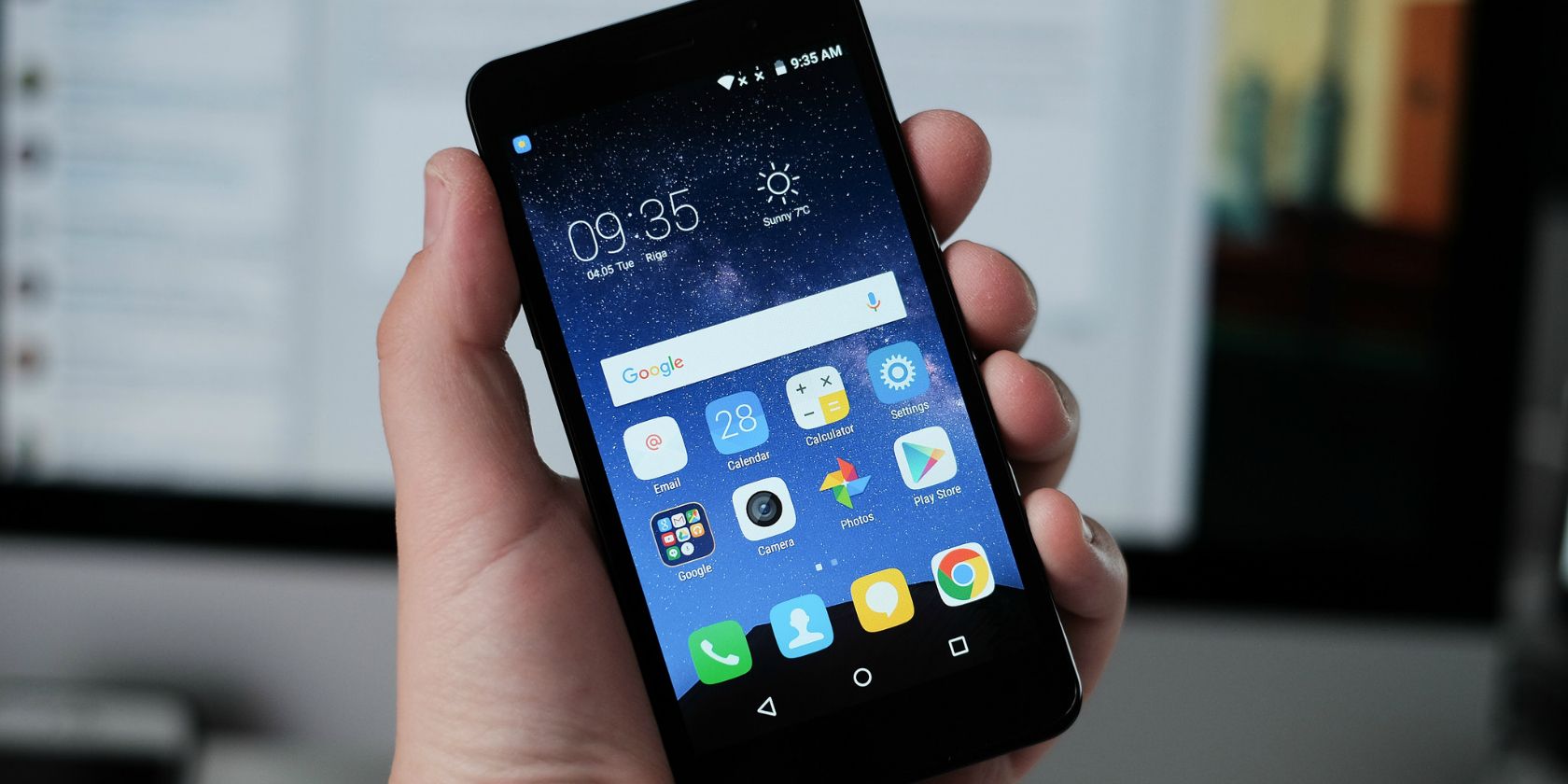Eye strain can be a huge issue for anyone who spends a lot of time looking at screens—whether that's a desktop monitor, a television, or even a smartphone. Improper screen brightness settings can cause your eyes to strain, and fatigue while staring into bright screens at night can make it difficult to fall asleep.
Research has shown that exposure to blue light (the kind emitted by electronic screens) at night can disrupt your circadian rhythm, a biological process involved with sleep cycles. That's why you should start using one of the following Android screen brightness apps. You'll be surprised how helpful they can be.
1. CF.lumen
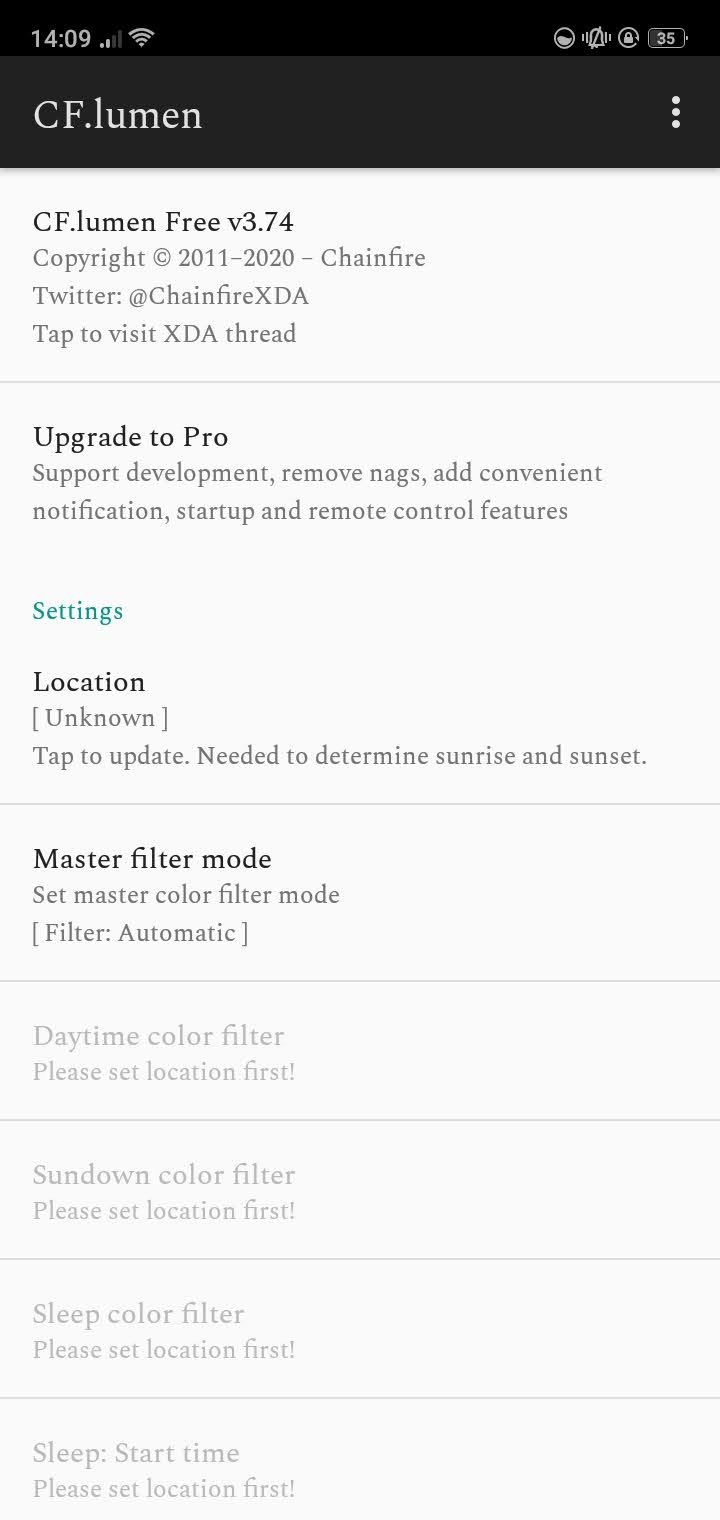
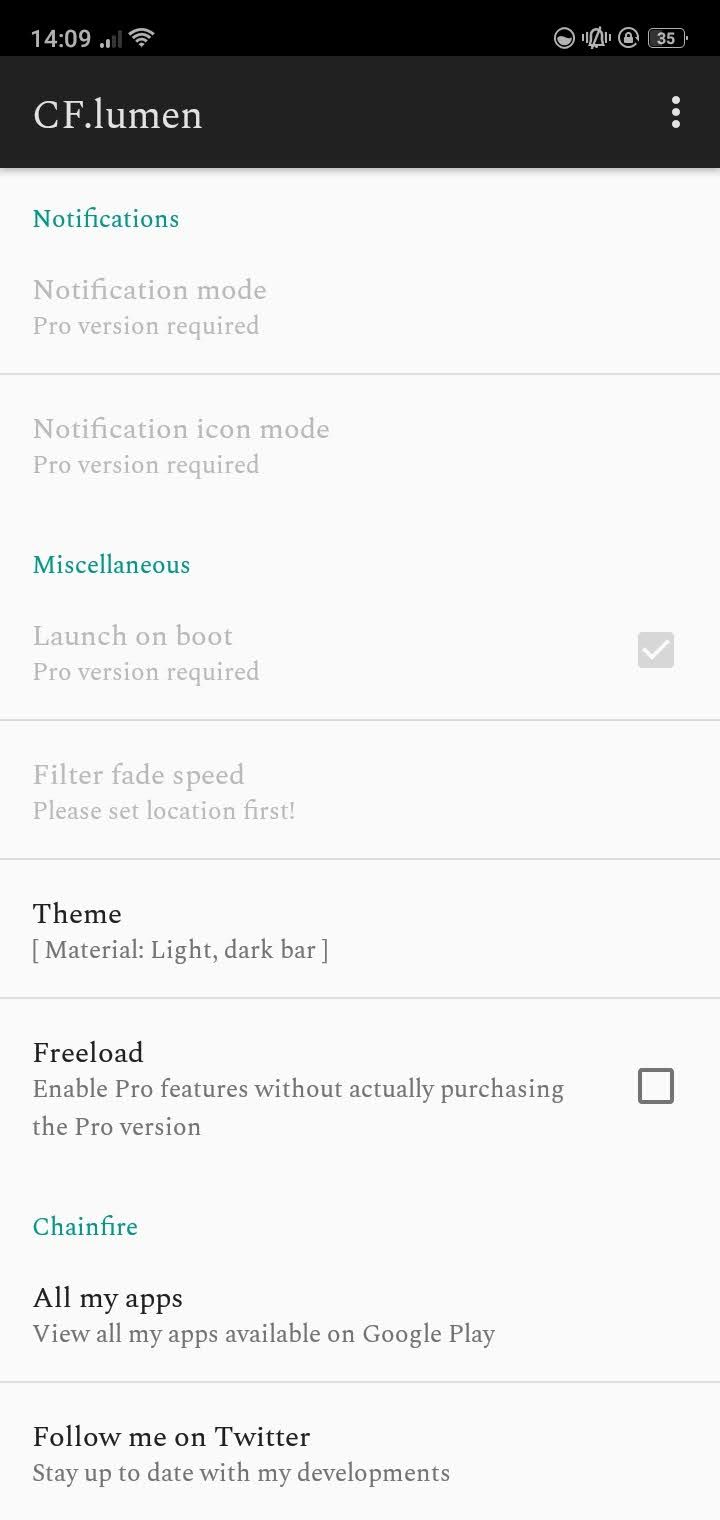
If there's one thing that puts CF.lumen ahead of all other brightness and screen temperature apps, it's this: CF.lumen adjusts colors by directly manipulating gamma values rather than using a tinted transparent overlay (although an overlay option is available in the settings).
All of the automatic brightness adjustments are made according to your location and time of day. You can customize the adjustment amounts, and you can toggle some nifty options like "Force sleep mode in the dark" or "Force day mode in bright ambient light." Useful when, for example, you're in a bright room at midnight.
And here's something really cool by the developer: the Pro version of CF.lumen adds new features like quick toggle buttons, notification options, and removing the few upgrade nags—but if you want, you can toggle the "Freeload" setting to get all Pro features without paying. Buy it if you can, but if you're strapped for cash, it's nice to know this option is there.
Download: CF.lumen (Free, in-app purchases available)
2. Twilight
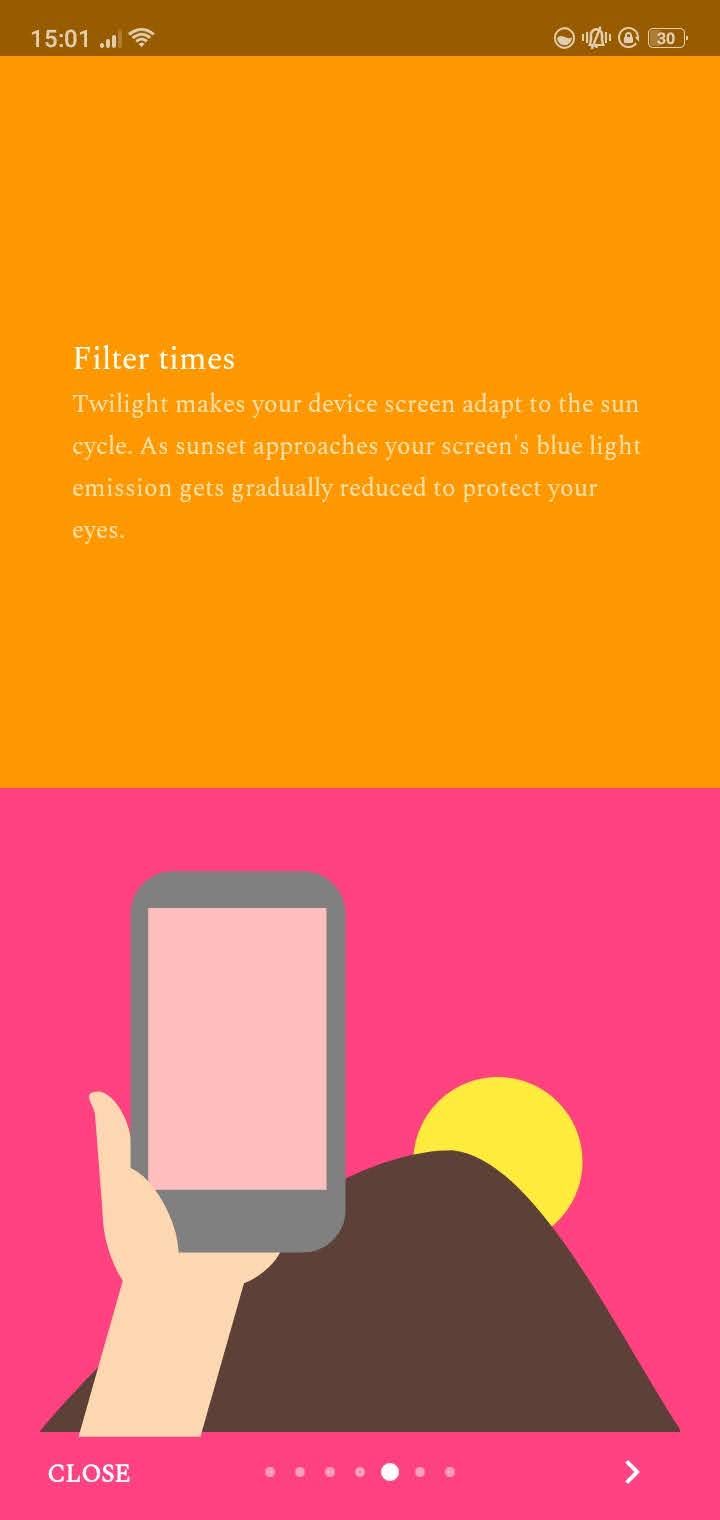
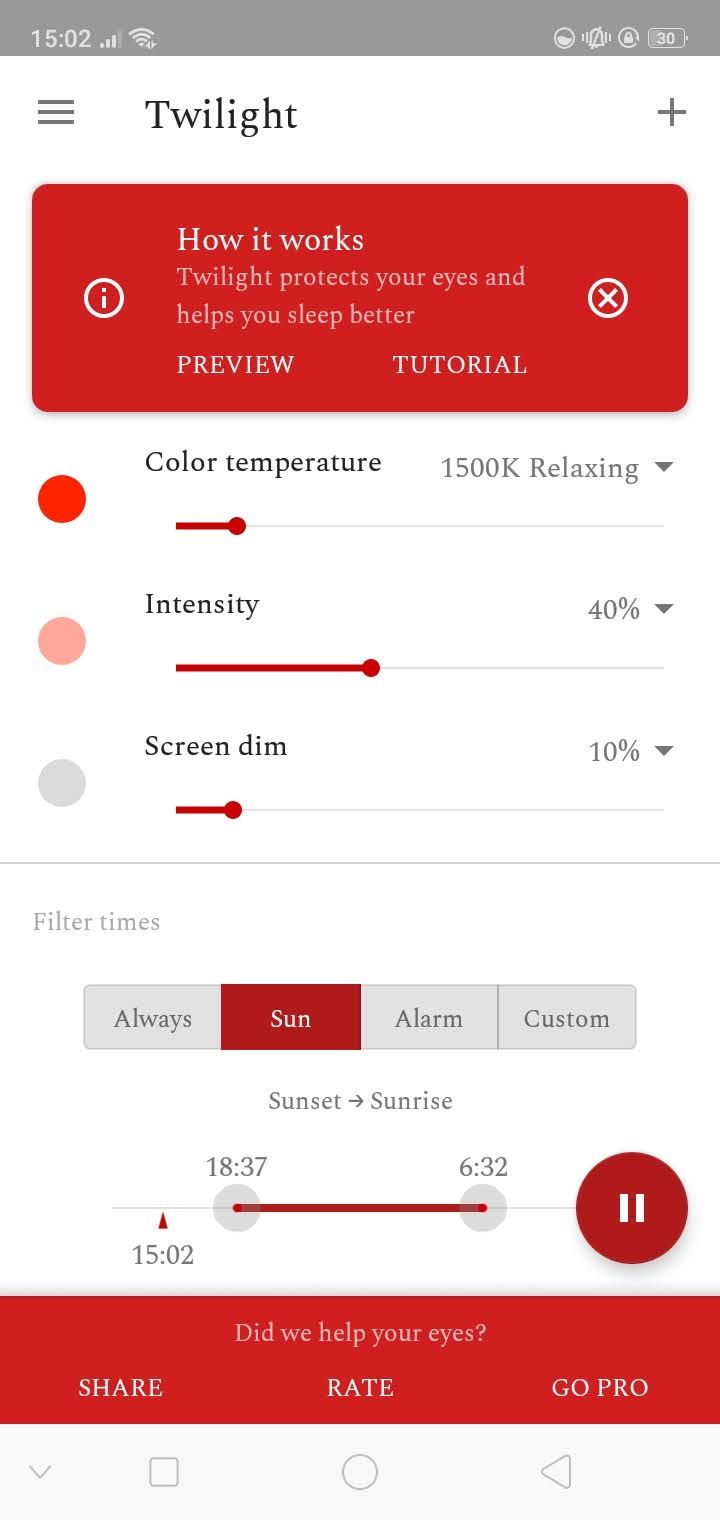
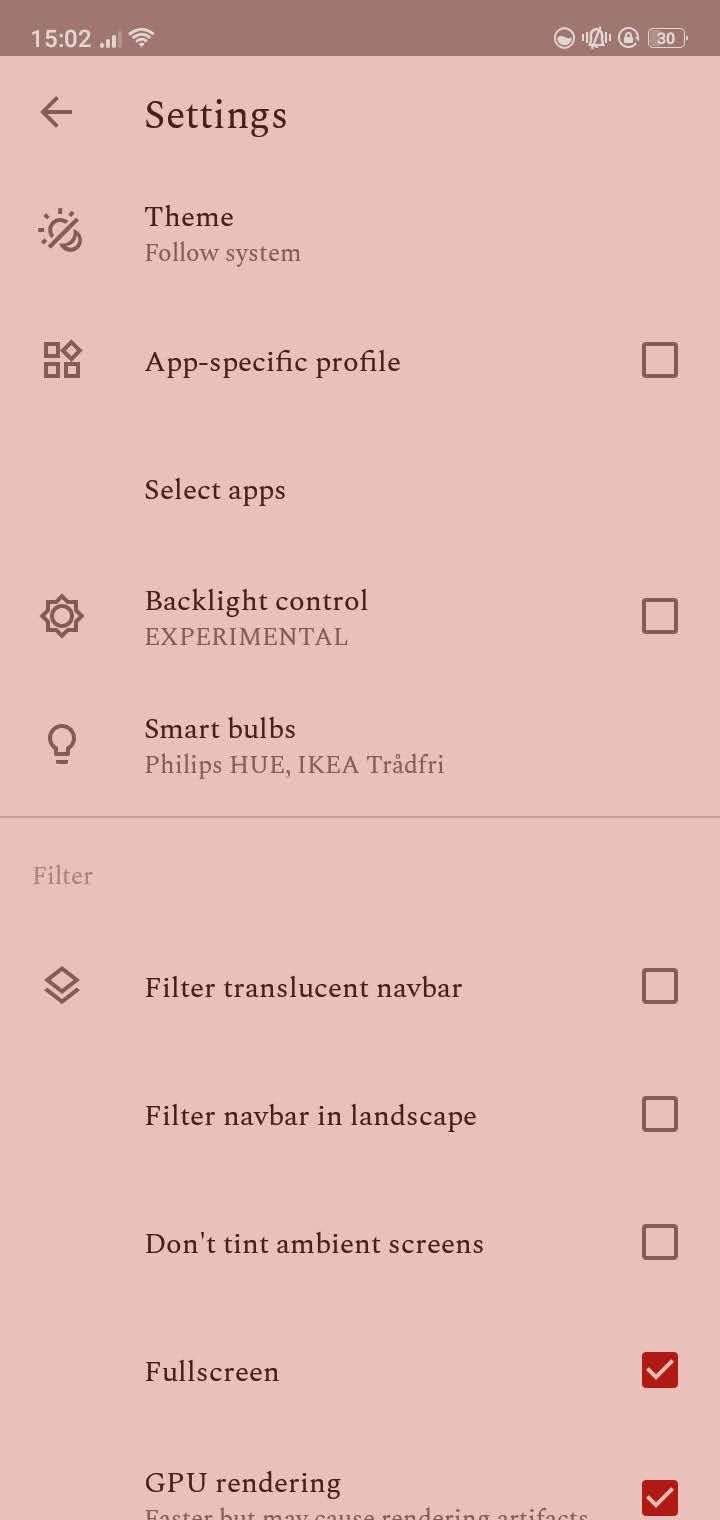
Twilight is another well-known app to reduce screen brightness on your smartphone. Using sunrise and sunset times as indicators, Twilight automatically adjusts the screen temperature (how much blue light is emitted) to lessen disruption of your circadian rhythms. After sunset, Twilight dampens screen temperature using blue-light filtering and warmth intensity.
Twilight also has a dimness factor, so you can ignore all of the warmth and temperature controls and automatically adjust screen dimness based on the same sunrise and sunset settings.
There's an optional Pro version with extra settings: custom sunrise time, custom sunset time, custom transition time (the time it takes to fade from no-dampening to full-dampening when you hit sunrise or sunset times), and more.
Download: Twilight (Free) | Twilight Pro ($4.99)
3. Velis Auto Brightness
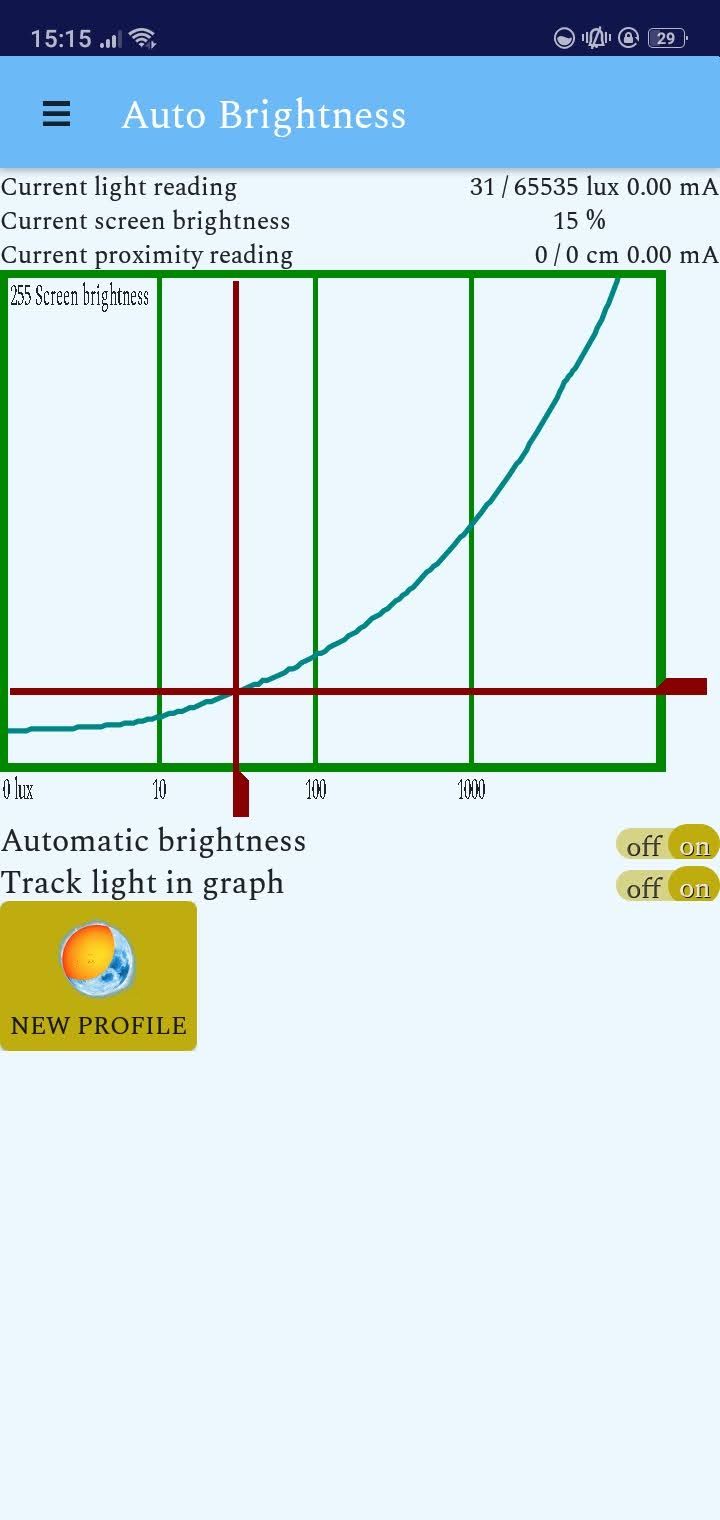
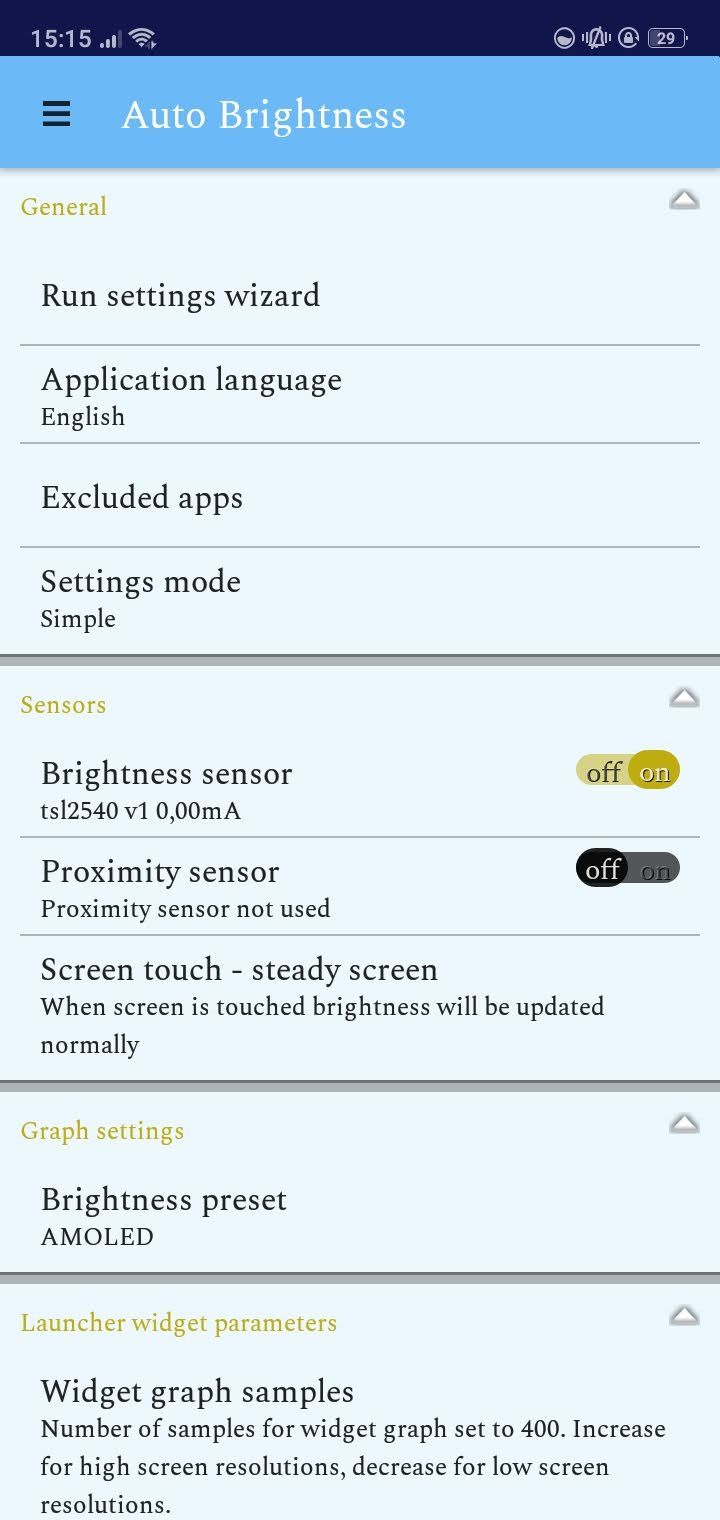
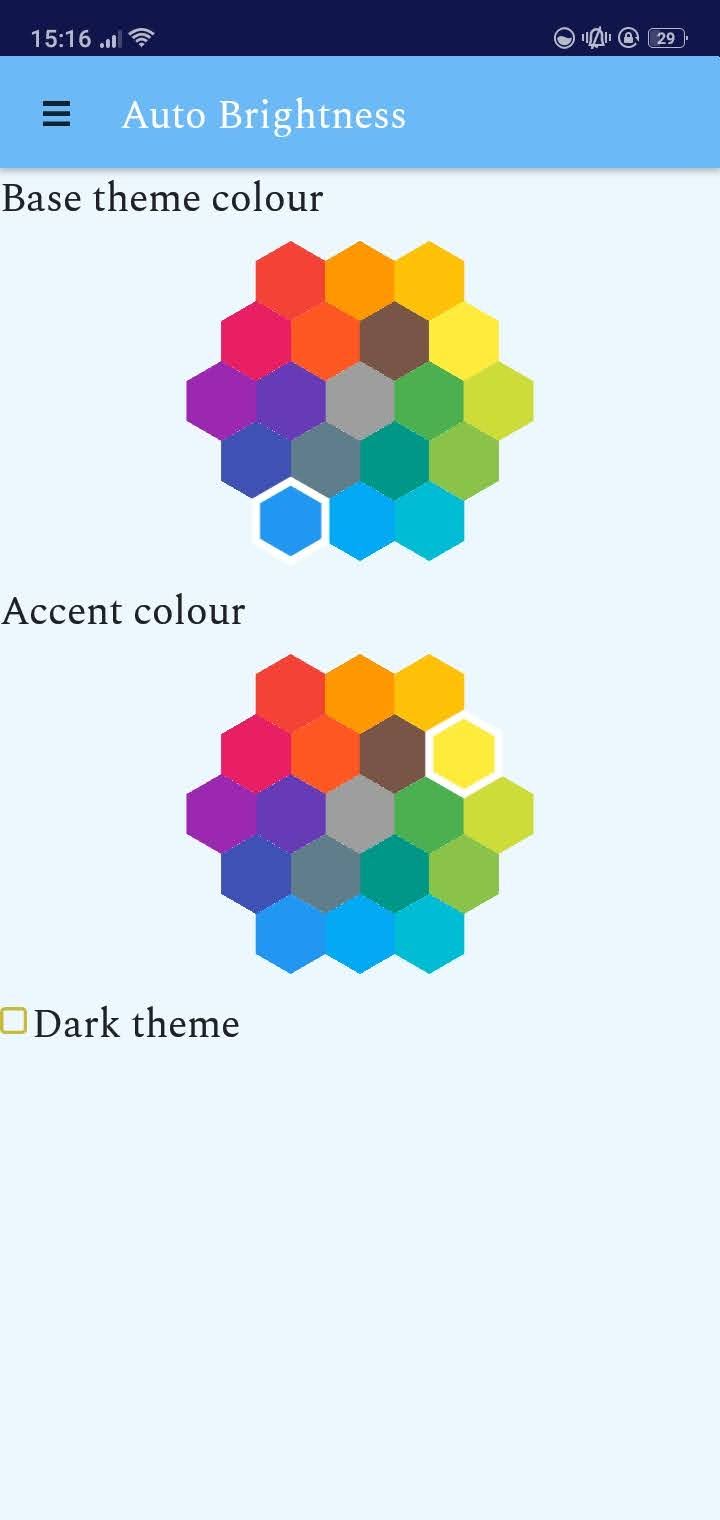
Velis is a replacement for Android's default auto-brightness feature without all of the other bells and whistles that come with other brightness management apps. The learning curve for Velis is slightly steep, but that's because it gives you maximum control over what you can do. Fortunately, it also comes with a setup wizard to get you going right away.
Velis gives you a graph (ambient light reading along the X-axis, screen brightness along the Y-axis) and allows you full control over what the auto-brightness graph should look like at every point. At such-and-such ambient lighting, you can set the brightness for A; at so-and-so ambient light, brightness B. Velis fills in the gaps.
Other great features you'll find in Velis: super dimming (even darker than Android's default minimum brightness), excluded apps (Velis won't run when these apps are in focus), and multiple profiles for different auto-brightness graphs.
Download: Velis Auto Brightness (Free)
4. Night Screen
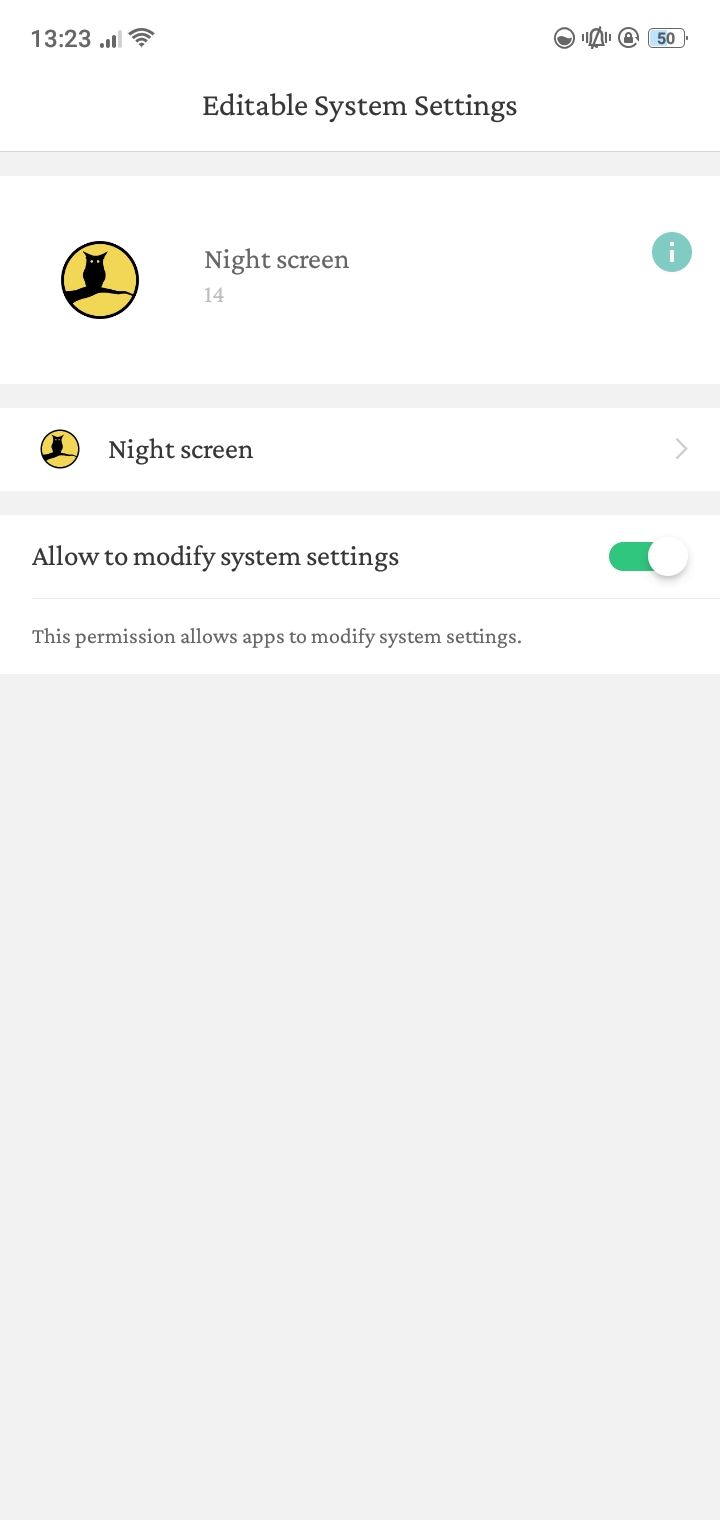
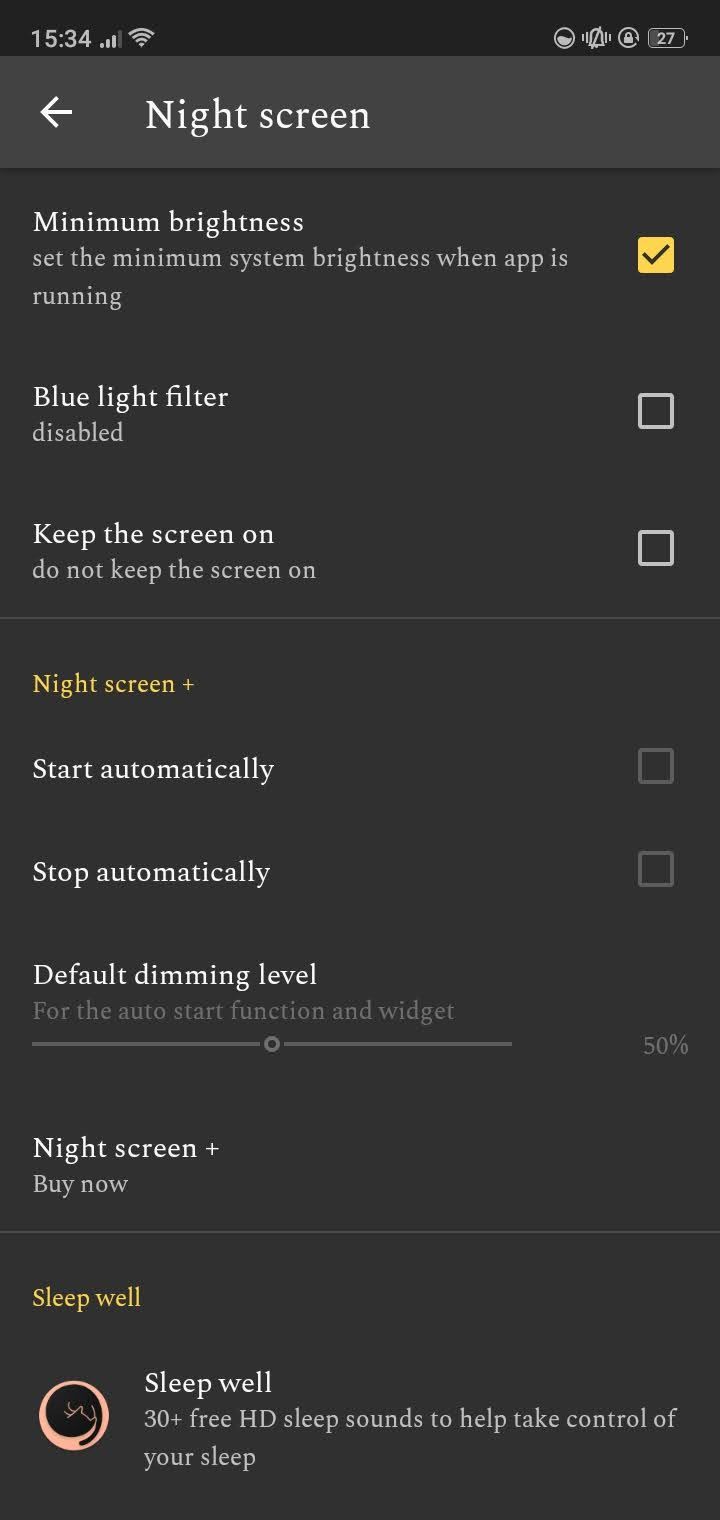
The brightness on your computer, tablet, or smartphone can quickly cause eye strain and make you uncomfortable. Night Screen is another brightness app that will help you lower your screen brightness with a few changes in your settings. It applies an overlay filter that you can adjust to darken your screen.
The Night Screen app makes it straightforward for you to set the brightness level you want. You can also use the blue light filter to improve your sleep when you finally put your phone down. Unlike many other brightness apps, you can also dim the navigation bar as well to protect your eyes better.
The widget also makes it easy to enable and disable the Night Screen app when it is not in use, but unless you purchase additional features, you will have to set the brightness level each time you launch the app.
Download: Night Screen (Free, in-app purchases available)
5. Auto Brightness Control: Display Brightness level
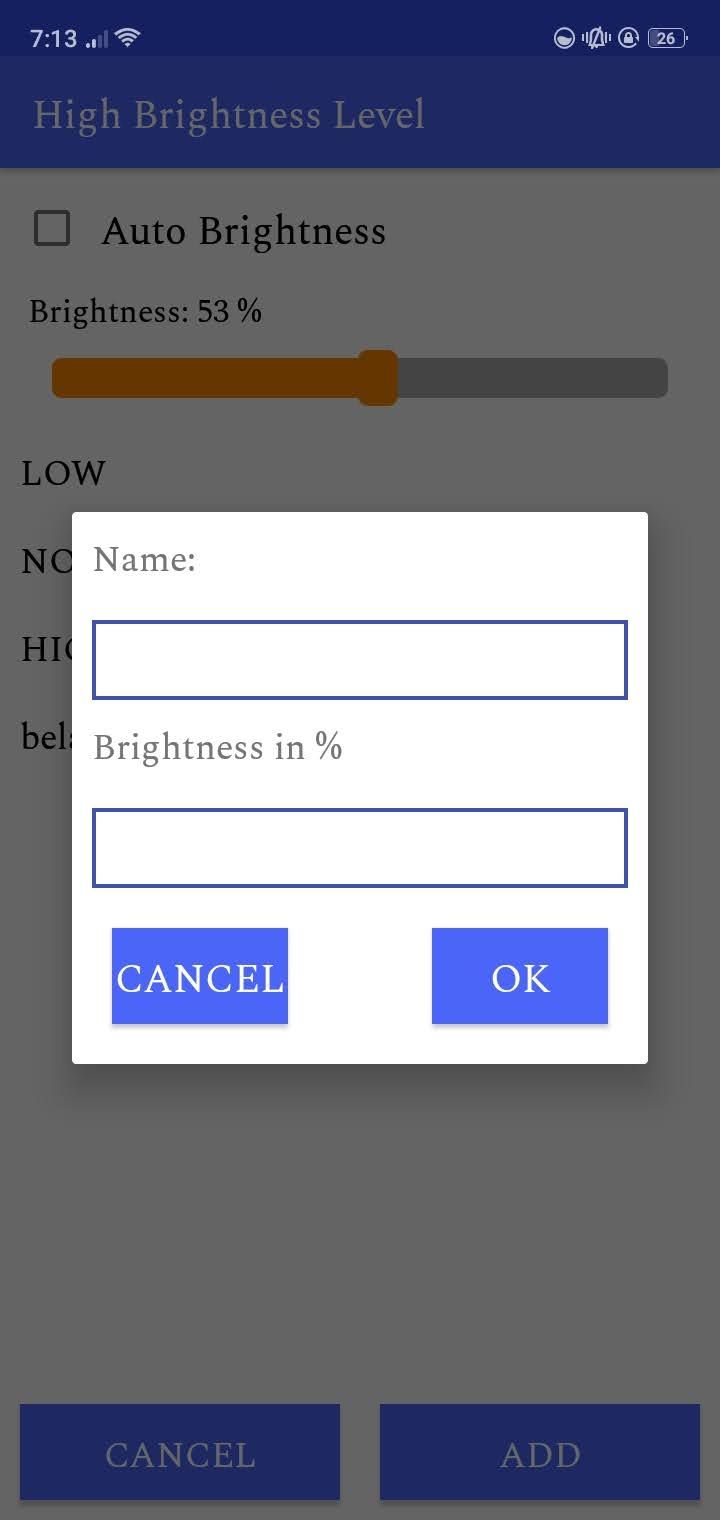
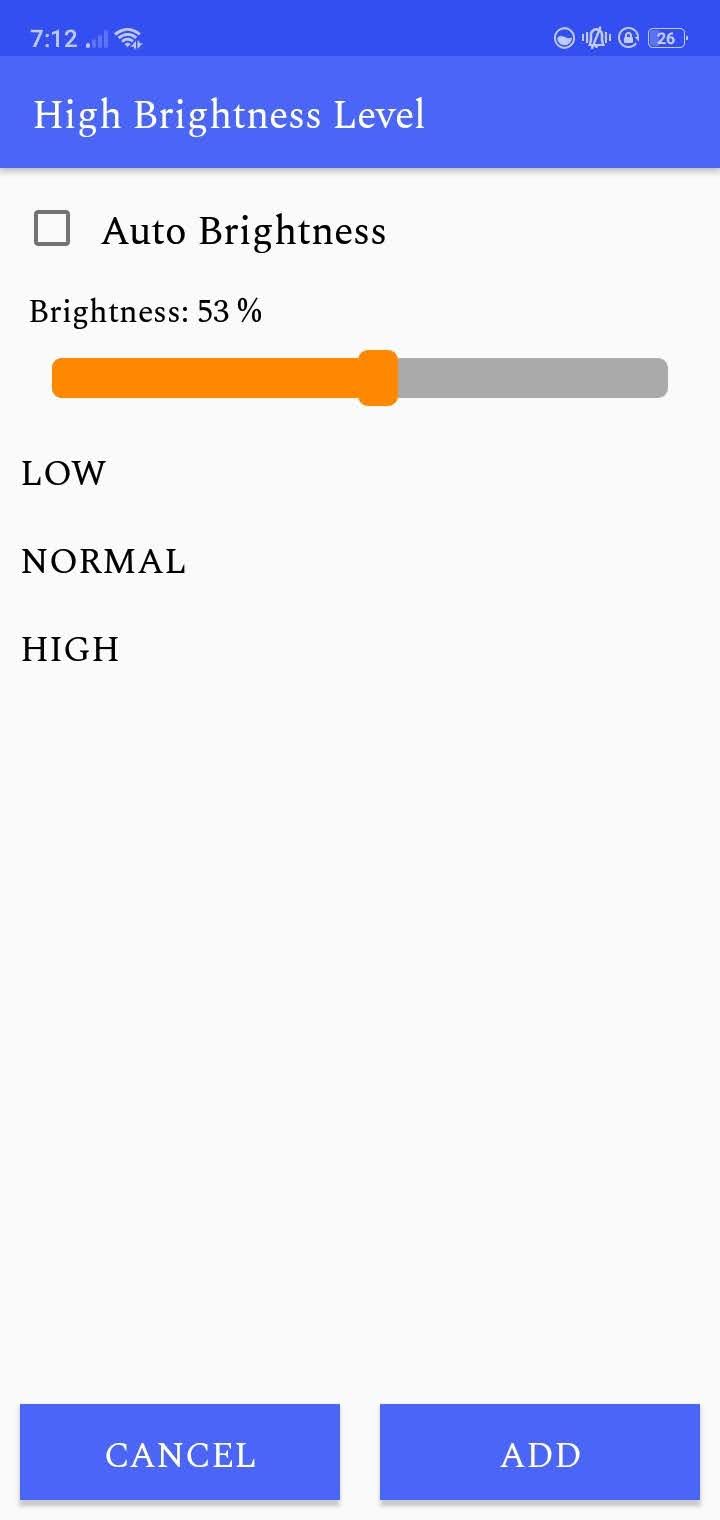
With this brightness control app, you can effortlessly adjust your phone display screen's brightness level. The adjustments make it easy to use your phone without straining your eyes. You can create a custom brightness plan depending on what you find most comfortable on your phone.
The levels include low, high, and normal brightness. The various brightness levels make this app ideal if you are looking for a fast and efficient utility, as you can quickly switch between plans based on the time of day or what other app you're using.
Download: Auto Brightness Control (Free)
6. Light Delight
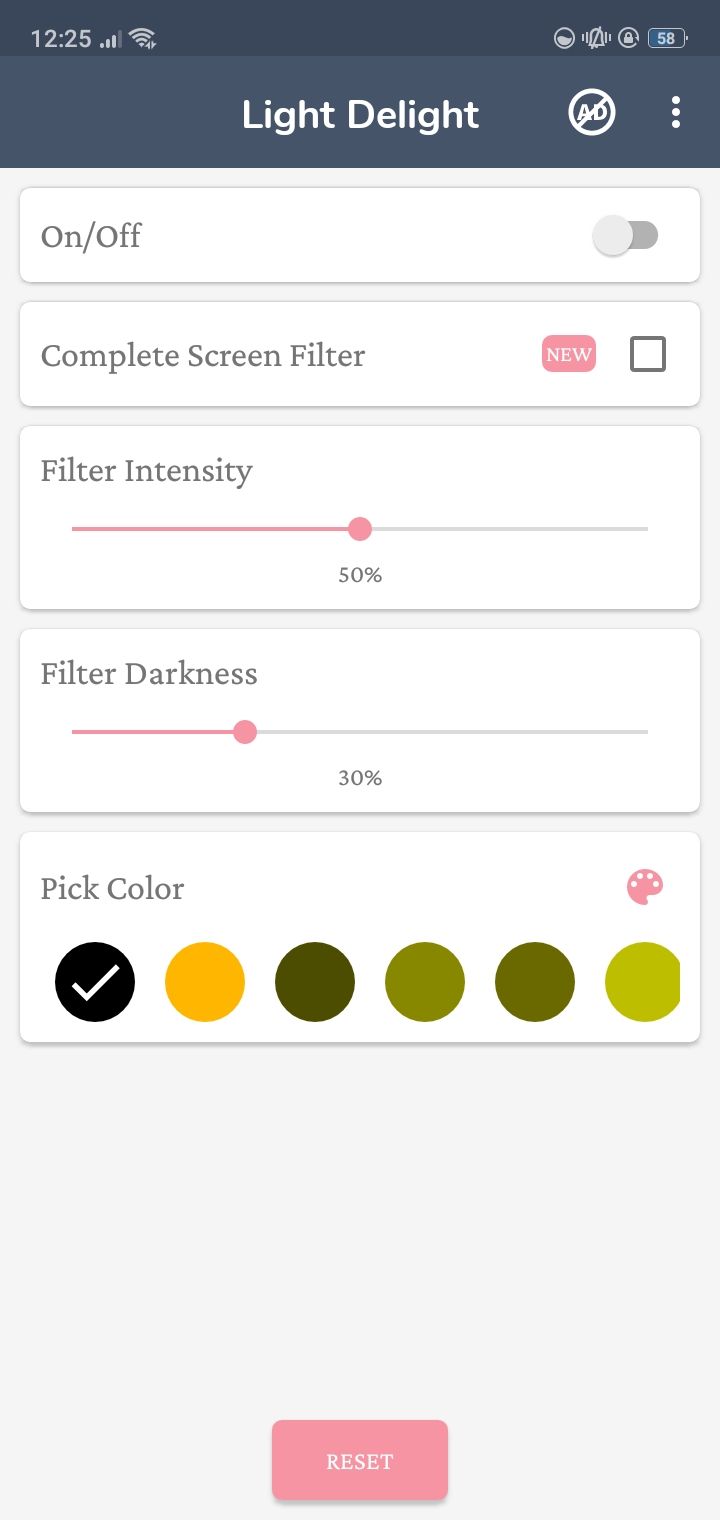
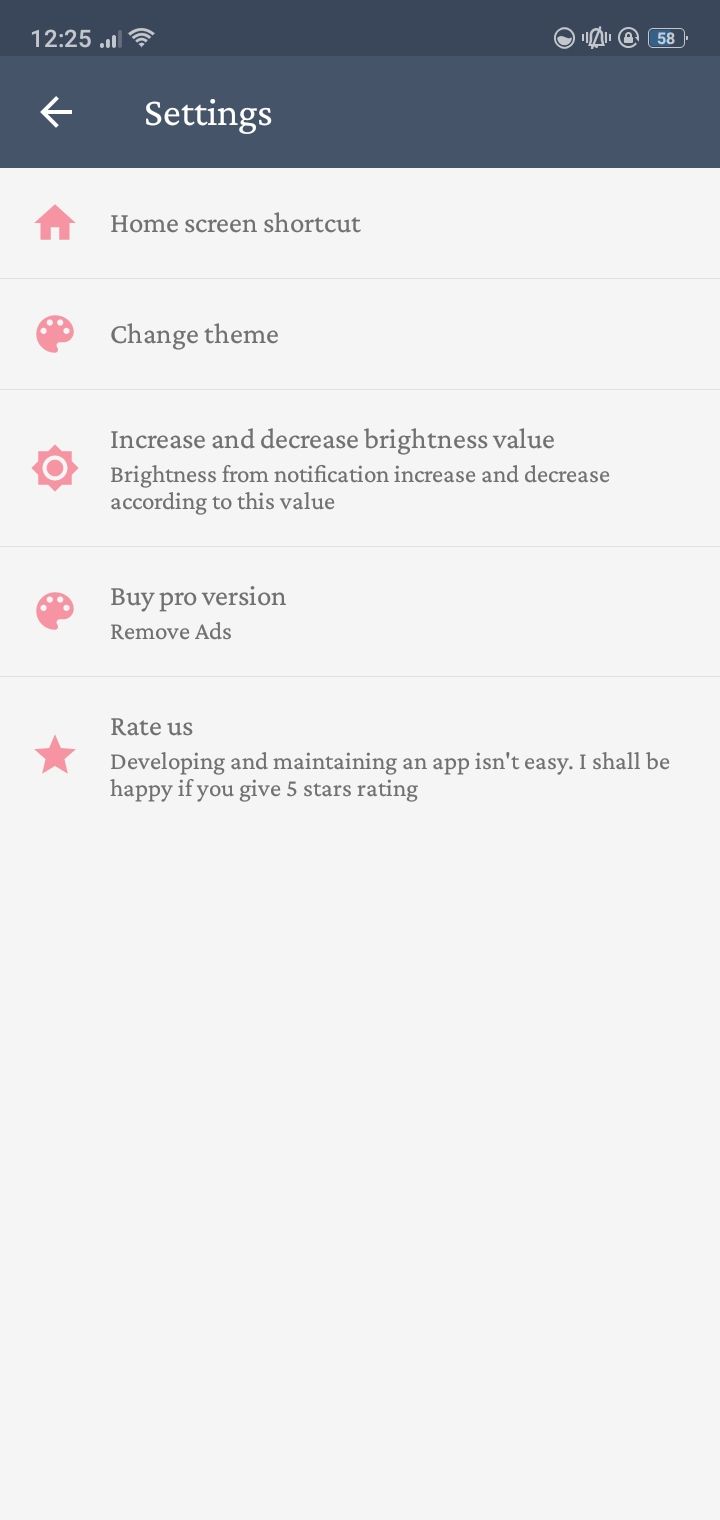
Blue light flux is harmful as it can cause migraines and headaches. It also causes stress and may harm your vision in the long term. If you are having trouble sleeping after putting your phone down, this app might help. Understanding how blue light works will show you why you need to protect your eyes with this app.
The Light Delight app features an easy to use interface for you to reduce brightness to any level. It works by blocking blue light to lower the screen brightness, especially when using your phone at night. The app works by using color filters to help you protect your eyes from glare and other harmful effects.
Download: Light Delight (Free, in-app purchases available)
Which Android Brightness App Do You Like Best?
With screen brightness, you might only realize how much impact it has until someone shows you. You might think the fuss over it was nonsense, but it's worth trying some of these apps out to see for yourself. It won't take long for your eyes to feel less fatigued and for your sleep pattern to become normalized. Don't underestimate the usefulness of these apps!
Beyond that, an even better way to rest your eyes and help yourself unwind at night is to cut down your smartphone use in general.

